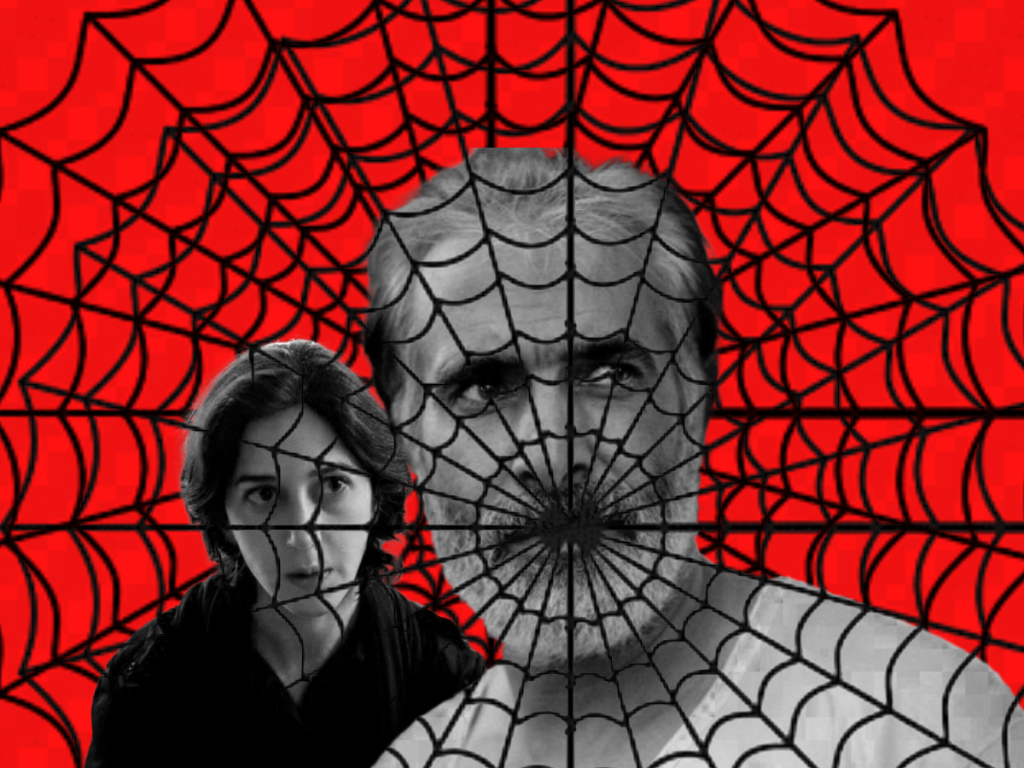In societies fractured by war, Holy Spider shows the wounds do not simply heal. They fester beneath the surface, shaping the moral landscape in ways that are often unspoken but widely understood. Violence, once a tool of survival, seeps into the eco-system of daily life, justified not through individual rationale but through collective absolution. It is in this space, where trauma collides with tradition, and suffering breeds silence, that men like Saeed Hanaei emerge.
Who is Saeed Hanaei?
Hanaei, the subject of Holy Spider, was not an anomaly. He was not an outsider lurking in the shadows but a man who thrived within a system that legitimized his actions. A war veteran turned serial killer, he strangled 16 prostitutes in Iran’s holy city of Mashhad between 2000 and 2001. Yet, when his crimes were exposed, he was not universally condemned. Instead, some hailed him as a righteous warrior, a man purging society of its moral decay. The contradiction is as striking as it is revealing. How does a deeply religious society not only enable such acts but, in some cases, actively celebrate them?
The answer lies in a dangerous confluence of trauma, faith, and systemic blindness. The post-war landscape of Iran, much like that of many conflict-ridden nations, was marked by disillusionment. Soldiers returned not to glory but to economic hardship, social alienation, and a rigid moral order that sought to impose control rather than offer healing. In such conditions, the impulse to reclaim power, especially for men who felt stripped of purpose, found an outlet in violence. The women Hanaei targeted were not just victims of his personal pathology; they were scapegoats for a society unwilling to confront its own contradictions.
Are Only War-Torn Societies Vulnerable to This?
This pattern is not unique to Iran. In 2022, the Indian government approved the early release of 11 men convicted of gang-raping a pregnant Muslim woman, Bilkis Bano, and murdering 14 members of her family during the 2002 anti-Muslim riots in Gujarat. When they walked free, they were greeted with sweets and garlands. They were not seen as criminals. They were seen as warriors, men who had upheld the values of a certain nationalist ideology.
How does a society reach this point? The answer lies in the intersection of socio-economic crisis, trauma, and ideological conditioning. In post-war Iran, economic instability and prolonged conflict created a need for order and purity, leading to an acceptance of moral policing. Similarly, in India, the legacy of communal riots and political opportunism fosters an environment where crimes against minorities are not just overlooked but, in some cases, rewarded. These are not isolated acts of brutality but symptoms of a broader crisis—a deep-seated fear of losing religious and cultural dominance.
In deeply religious or nationalist societies, morality is often not a matter of universal ethics but of identity. Who is the victim? Who is the perpetrator? These questions determine whether an act is seen as a crime or a righteous act. Religion, in its most profound sense, is meant to provide solace, guidance, and justice. But when it is entangled with power structures that seek obedience rather than introspection, it becomes a tool for rationalizing cruelty. The sanctity of the “holy city” of Mashhad did not deter Hanaei; it emboldened him. He saw himself not as a murderer but as a purifier, his hands an extension of divine will.
The Toll on the Mind and Soul
The psychological underpinnings of such justifications are deeply rooted in the human need for belonging. War, displacement, and social upheaval fracture identities, leaving many searching for a moral compass. In this void, absolutes thrive, good versus evil, purity versus corruption, us versus them. For Hanaei in Holy Spider, and for those who cheered his actions, the women he killed were not individuals. They were symbols of everything that had gone wrong, stripped of their humanity so that their deaths could serve a greater “moral” order.


A very powerful piece. Got an insight on ho extreme nationalism can twist morality and justify crimes.
Thank you! It’s unsettling how extreme nationalism can erode empathy, turning atrocities into ‘necessary evils.’ The true test of morality lies in our ability to recognize humanity beyond borders and ideologies.